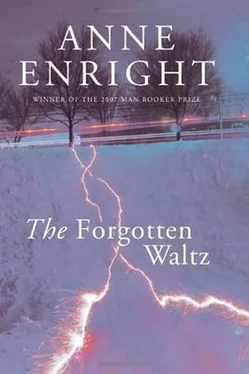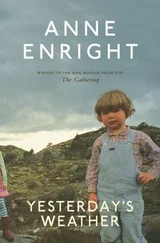As it turned out, the bad times were already upon us and what started out as a new and exciting web-based viral marketing campaign turned into me in a VW Golf, putting girls in bikinis into bars with trays of flavoured vodka. Which is about as far away from the future of the world wide web as you can get. It sure sells vodka though, and there is very little I don’t know, now, about fake tan. I’m like this really drawly air hostess I heard over the intercom once, then realised it was the captain speaking, and she wasn’t offering us drinks and snacks. ’Em, yeah, nothing much to report here, folks, we’re cruising now at twenty-thousand feet, bit of a tailwind…’ So I’m the really drawly one, in this bevy of bottle blondes with goosebumps on their Xen Tan Absolute. I am all white, and all real, I keep my clothes on and earn many times what they do, despite which I am pushed, sometimes actually shoved aside by local press, publicans, and many hundreds of drunken men, every second Friday night, from 5.30 to 9 p.m. Some of the men pause to sneer at me first, or they turn to sneer at me after, Yeah, look what we got . There is an amount of what you might call collateral anger to mop up. And there’s always one guy – a nice guy, a good guy – who decides, in all the excitement, that the girl to hit on is the one wearing the clothes. For this, I get paid. I’m a pimp. It’s a funny life.
But I am not going up to Dundalk to do a promotion, I am going up to Dundalk to let two of the sales staff go, after which, one of them will be taken back at a casual rate. I’m still relatively new, so I am the one who gets to fire people, the unspoken suggestion being, of course, that the last person I fire may be myself.
The office is a couple of rooms tacked on to a warehouse near the M1: grey walls, grey roof, blue carpet, red banisters, yellow cubes to set your coffee cup down. It is hard to think that people work here. No voices are ever raised. Nothing feels used.
I set up in the small meeting room and call the girls in, one at a time. I keep it neat and light, because that’s the way I like to work, but I can’t help but be caught by the look in their eyes. I am not saying I enjoy it, but you spend your time pretending you’re not actually the boss, that you’re all just friends, and they still bitch about you like crazy. Now the pretending was over. With benefits and casual hours they wouldn’t do too badly, but still you could feel it, the first snappings, strand by strand, as the rope started to go: Sinéad, with four-hundred-and-twenty points in her Leaving Certificate and a mouthful of veneers she got on the HP. Alice, who was a hippy chick at heart, just saving up for her trip to Peru. I said I would fight for the best possible package. I told them that human resources would be in touch. Then I stood up and offered my hand to shake. Then a hug, because we were all just friends really. And then they left. I did some photocopying, put my head around the distribution manager’s door – he was already heading home – then I walked out through the warehouse floor. I ducked under gallons of hooch raised in a toast on an abandoned forklift – there it all was: drink stacked high, walls of drink, drink on the move.
I drove back to the interchange and, after five miles of road, the car was swallowed by the soft and oncoming storm; a dream of red tail lights, in a dirty white mess of snow. Everything was so quiet, and the other drivers so gentle; I should have been worried, but there was something about this slow danger that was comforting and lovely. I don’t know how long it lasted. By the time I passed the airport, the air was clear. Seán was in there somewhere, in a welter of cancellations. The passengers were running from gate to gate, ‘like a herd of bullocks,’ he said. I crouched over the steering wheel and looked up, but the sky I saw through the windscreen was already dark and empty of planes.
It was half past four.
According to the radio, the entire country had bailed out of work early and was heading for home. I expected Dublin to be bedlam, but the port tunnel was so empty and pure it felt like the future, and the quays, when I surfaced in the dark of the city centre, were deserted. I imagined the traffic spreading like an aftershock, washing up in a dirty rim in the foothills of the Dublin mountains, where the pure snow began.
The schools had closed early. I wondered about Evie, if her mum would get there to pick her up, or how she would manage. I went to dial her number and then I didn’t. I have never actually rung Evie, though we are perfectly happy to talk if, by some accident, we end up on the phone.
Back in Terenure the house was dark and empty and cold. I turned on the heat and checked my emails, but I found it hard to settle. I was waiting for Seán to come home but he had not even left yet. It made me strangely angry, the thought of him sitting at the seafood bar, with a plate of smoked salmon and a glass of white. Neither here nor there. A man not unaccustomed to the departure lounge.
It took Seán seven months to leave Enniskerry. For seven months, after I left Conor, he got out of my bed and got in his car and drove home, so he could be there in the morning to make his daughter’s porridge (with cinnamon) and kiss her mother goodbye.
Just a peck, of course.
Seven months, I wasn’t allowed to ring or text or email, because it was more important than ever to be secret now; our love more urgent and sweet in these last days before he went clear.
But he did not go clear. After Christmas, he said. He could not do it before Christmas. They were buying Evie her first laptop; a little netbook. He wanted one himself, if only he could afford it, he said. And he laughed.
That Christmas – I can not even think about that Christmas. Whoever invented Christmas should be shot.
And when he finally washed up on my doorstep at two in the morning, after who knows what storm; when he finally broke free of her that spring and came to me, he did not come to live, but just to escape. He still spends the occasional night out – I assume in Enniskerry. I do not ask. In Ireland, if you leave the house and there is a divorce, then you will lose the house, he says. You have to sleep there to keep your claim. Which was all news to me, but there you go. You think it is about sex, and then you remember the money.
So here we are, some nights: me sleeping in my sister’s bed in Terenure. Seán sleeping in the au pair’s room in Enniskerry, where we kissed, or perhaps even in his old bedroom, beside the aggrieved body of his wife. Seán somewhere asleep, between the ageing flesh of his wife and the growing flesh of his child. Who knows where is he sleeping, in his dreams?
‘I never remember my dreams,’ he says.
It is not just the snow that makes me wonder these things. Though it is also, perhaps, the snow. It is Seán’s voice on the phone finally landed in Budapest, sounding just like himself and so far away.
‘Fucking Ryanair,’ he says.
‘Well, yes.’
‘We were sitting on the tarmac for an hour and a half, I looked out the window and there was a man at the wing with a shovel. He was taking the ice off with an actual shovel, and there was a kind of rope with two men hanging on to it, jumping up and down. They were sawing back and forth, with this rope thrown over the wings. Which was bad enough. I mean sitting there watching it was bad enough. But then we took off.’
‘Jesus. Were there lights?’
‘What do you mean, lights?’
‘I don’t know. Snow lights. Or something.’
I need to see him safe in his plane. I need to look in through the porthole windows, with blue lights and white lights flashing in the darkness, like a fifties movie set; the snow swirling outside. And, as if he has guessed my problem, Seán says, ‘The man was not standing on the wing. Believe me, I checked.’
Читать дальше












